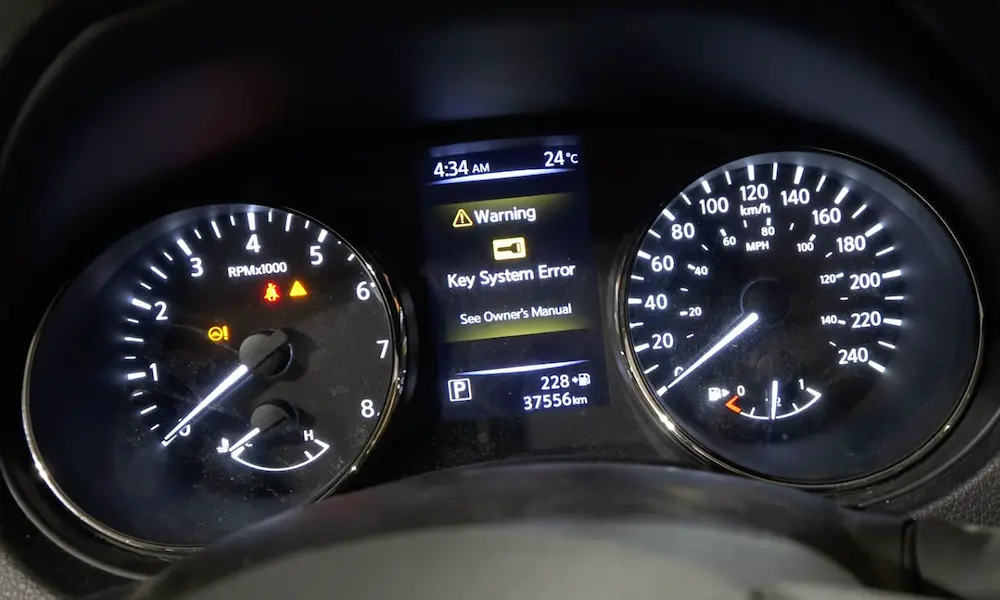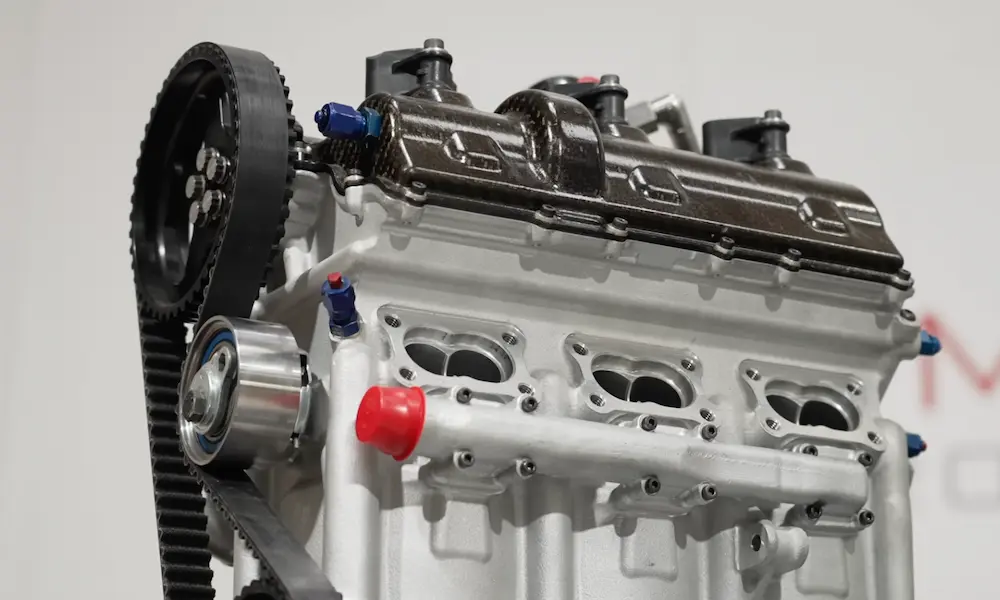Buying a Nissan with a CVT might leave you worried about possible issues. Nissan’s CVT transmissions often face problems such as overheating, shuddering, and failure, leading to expensive repairs. Understanding these issues can help you avoid costly surprises. Dive into the details to learn how to protect your car and ensure a smoother ride.
Common Nissan CVT Issues
Nissan CVT transmissions are known for certain problems. You might encounter issues like shuddering, stalling, whining noises, and even fluid leaks. These can affect the performance and reliability of your vehicle.
Shuddering and Stalling
Many Nissan owners report shuddering during acceleration. This is often due to the CVT struggling to find the right gear ratio. The Transmission Control Module can sometimes fail, leading to improper shifts. This can cause the car to jerk or stall unexpectedly.
Regular maintenance, including checking for diagnostic codes, can help address these problems early. Fortunately, some solutions are straightforward, like a fluid change. It’s a good idea to get issues checked out to prevent long-term damage.
Whining Noise and Loss of Power
A whining noise is a common complaint with CVTs. You might notice it when accelerating or driving at high speeds. This noise can indicate a problem with the belt or pulley system inside the transmission. When power loss occurs, it may signal the need for a transmission repair.
Regular checks on your transmission fluid can sometimes catch this issue early. Remember to contact a professional if you experience this, as it can lead to further complications.
Overheating and Fluid Leaks
Nissan CVTs tend to generate a lot of heat, which can lead to overheating problems. Overheating might cause the transmission to shut down to prevent damage. Frequent overheating can lead to long-term transmission failure. Additionally, you might find transmission fluid or coolant leaking onto the ground.
These leaks can be dangerous as they may cause further damage if not fixed. Regular inspections of your transmission system, cooling systems, and fluid levels will help keep it in good shape. Always address fluid leaks quickly to maintain a healthy transmission.
Model-Specific Nissan CVT Problems
When dealing with Nissan CVT transmissions, different models exhibit unique challenges. From slipping gears in the Altima to hesitations in the Rogue, understanding these specific issues can help you tackle potential problems.
Nissan Altima CVT Challenges
The Nissan Altima has been notorious for its CVT issues, particularly in models ranging from 2007 to 2015. Owners often report problems such as gears slipping and delayed acceleration. These issues can lead to rough driving experiences and safety concerns.
Transmission overheating is another common complaint. It’s essential you keep an eye on early warning signs like shaking or shuddering. If addressed promptly, you might avoid pricier repairs like a complete transmission replacement.
Issues in the Nissan Rogue and Murano
The Nissan Rogue and Murano have also experienced their share of CVT problems. Drivers have reported jerking motions, especially during acceleration. This behavior can often be attributed to software issues or mechanical wear.
For the Murano, high mileage often exacerbates these issues. Regular maintenance checks can help you identify potential problems. Keeping your transmission fluid in good condition is a way to help ensure smoother operations and prolong the life of the CVT.
Pathfinder and Sentra: Transmission Woes
In the Nissan Pathfinder and Sentra, you may encounter issues like sudden lurches and power losses. These can be dangerous if they occur at high speeds. Many Pathfinder owners, in particular, have cited slipping and hesitation.
Such issues are sometimes resolved with software updates. However, persisting problems might require more in-depth diagnosis and potential component replacements. Regular servicing can help you capture minor issues before they escalate.
Unique Concerns with Juke, Quest, and Versa
The Nissan Juke, Quest, and Versa each have distinct CVT-related challenges. The Juke is known for its transmission hesitations and stalling at lower speeds. Quest drivers have reported issues with vibrations and revving when the car fails to pick up speed.
In contrast, the Versa sometimes experiences problems with delayed or erratic shifting. Monitoring these symptoms early on can help you maintain better vehicle performance. If you’re experiencing these issues, a professional assessment might be a good idea to prevent further complications.
Technical Service and Recall Bulletins
When dealing with Nissan CVT transmission problems, it’s important to know about technical service bulletins and recalls. These documents help both your understanding and resolution of transmission-related issues.
Issued Bulletins by Nissan
Nissan frequently issues Technical Service Bulletins (TSBs) to address CVT transmission problems. These bulletins guide dealerships and repair shops on fixing known issues. For instance, in February 2021, a TSB was released to combat problems in Altima and Rogue models. This TSB details error codes like P17F0 and P17F1, offering specific repair steps.
Having access to these TSBs can enable your mechanic to quickly identify and fix common issues without much guesswork. Staying informed can save both time and hassle when dealing with repeated transmission concerns.
Warranty Extension and Recalls
In response to ongoing CVT issues, Nissan has extended warranties for some models. This includes extending coverage from the original 60 months or 60,000 miles to 84 months or 84,000 miles. This extension often covers the CVT assembly, internal components, and the control valve body, among other parts.
Recalls may also be issued when a problem affects vehicle safety. In such cases, Nissan notifies owners to bring in their vehicles for free repairs. Understanding these aspects can play a crucial role in ensuring your vehicle remains in good working condition without added costs. This awareness can give you confidence in managing your vehicle’s transmission issues.
The Impact of CVT Problems on Ownership
Nissan CVT transmission issues can have significant effects on your car’s resale value and overall ownership experience. You’ll find that buyers might hesitate due to these problems, affecting your vehicle’s market standing.
Vehicle Value and Resale Implications
Experiencing problems with your Nissan’s CVT can reduce its resale value. Buyers are often wary of potential transmission issues, which leads to reduced demand for used Nissans. This can result in lower offers and longer selling times.
Premature transmission failure is a key concern, as buyers may need to pay for expensive repairs down the line. A poor vehicle history report highlighting transmission issues can deter potential buyers even more, complicating your resale efforts.
Legal and Consumer Advocacy Perspective
Dealing with problems related to Nissan CVT transmissions can be challenging for vehicle owners. Legal actions, including class-action lawsuits, and complaints to the National Highway Traffic Safety Administration (NHTSA) play a significant role in addressing these issues.
Class-Action Lawsuits
Several class-action lawsuits have been filed against Nissan, focusing on defective continuously variable transmissions (CVTs). You might be interested to know that these lawsuits aim to compensate affected vehicle owners. For example, a recent settlement approved by a judge involves models equipped with CVTs. These actions often arise because of recurring transmission problems.
In another notable case, the Dhital v. Nissan case highlighted significant consumer victories. This legal decision emphasized the importance of consumer rights, ensuring that vehicle owners get the justice they deserve. By participating in these lawsuits, you can help ensure companies address safety and reliability concerns.
NHTSA Complaints Analysis
The National Highway Traffic Safety Administration (NHTSA) is a key player in ensuring vehicle safety. Many Nissan owners have filed complaints with the NHTSA about CVT transmission issues. These complaints often focus on problems like shuddering or unexpected jerking, which can affect the driving experience.
Analyzing these complaints helps highlight trends and pinpoint specific models with recurring problems. This is crucial for initiating recalls or safety investigations. If you’re experiencing these problems, you can file a complaint with the NHTSA. Your input can contribute to broader consumer advocacy efforts aimed at enhancing vehicle safety.
Maintenance and Prevention Strategies
To keep your Nissan CVT transmission running smoothly, regular maintenance is crucial. Attention to key areas like fluid changes and usage can extend the lifespan of your transmission. Find out how proper care can prevent costly repairs and the importance of adhering to warranty terms.
Proper CVT Care and Maintenance
Regular CVT maintenance is essential for avoiding transmission issues. Transmission fluid changes should be performed at the intervals specified in your owner’s manual. Using the correct fluid type ensures proper lubrication and cooling. Regularly check for signs of leaks or unusual noises, like humming or whining, which can signal a problem.
Preventative care can include consulting a professional for periodic Transmission Service. During these visits, technicians can inspect for wear and recommend necessary adjustments. It’s also smart to keep a record of maintenance activities, which can support any claims under your Powertrain Warranty. Proper documentation demonstrates that you’ve followed recommended care, protecting your coverage.
Tips for Prolonging CVT Lifespan
Careful driving habits play a big role in extending the life of your CVT. Avoid rapid acceleration and deceleration, as these can strain the transmission. If you live in a hilly area, use the appropriate driving mode to reduce stress on the CVT.
Periodically, you should verify that Warranty Coverage is intact. Ensuring coverage means that any unforeseen issues can be addressed with minimal personal cost. Along with scheduled maintenance, being aware of warranty terms provides peace of mind.
Transmission Repair costs can be high, so preventing issues is key. Following the guidelines and tips provided helps in keeping your Nissan CVT efficient and reliable over time.












